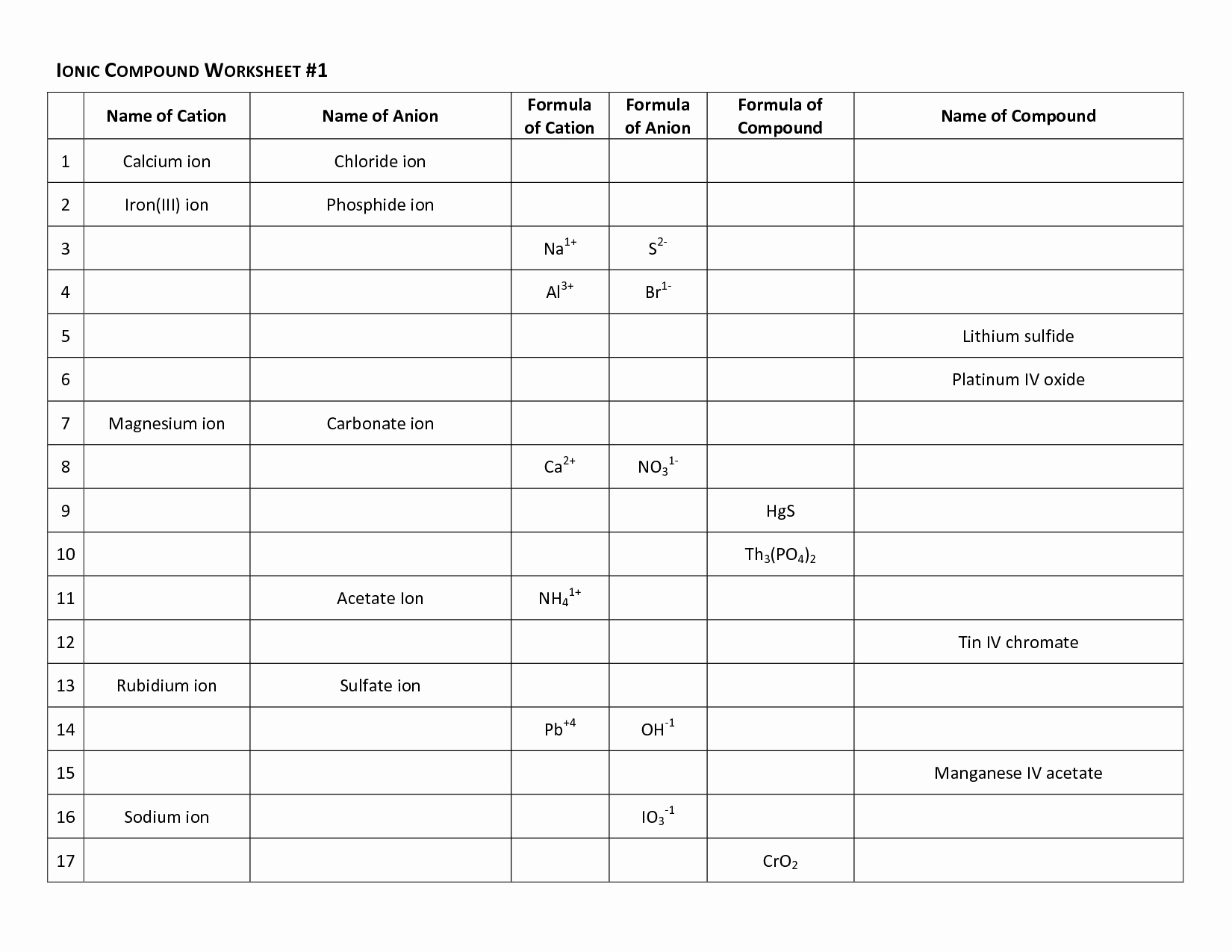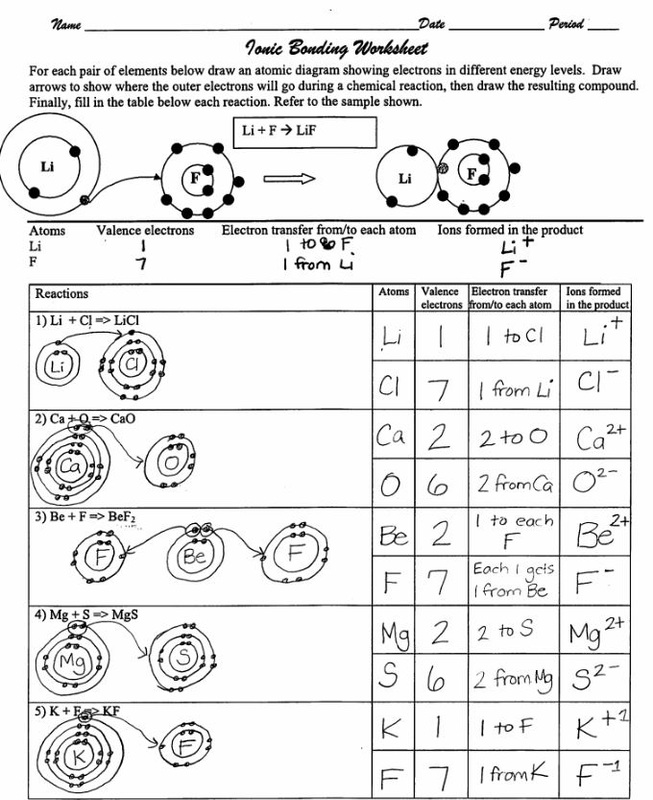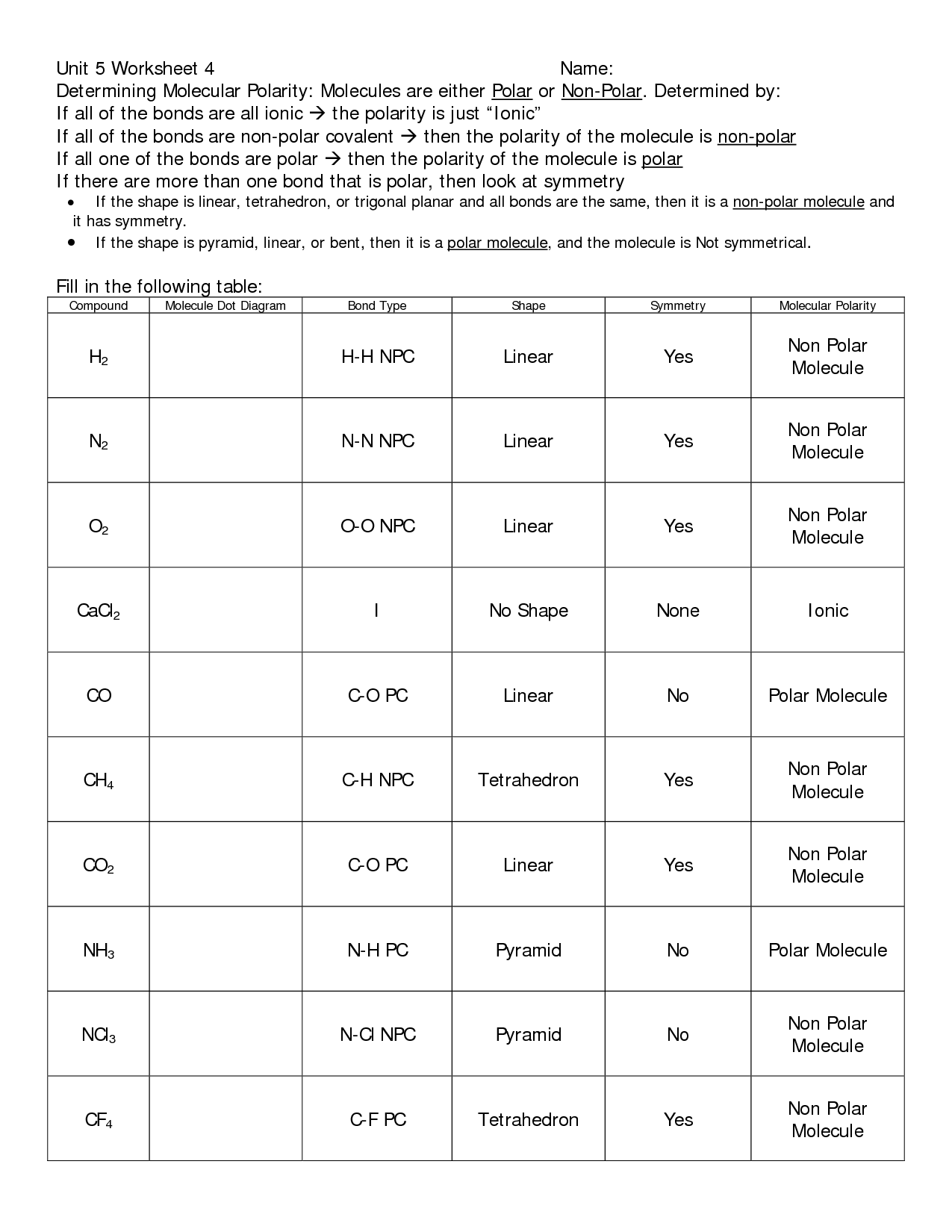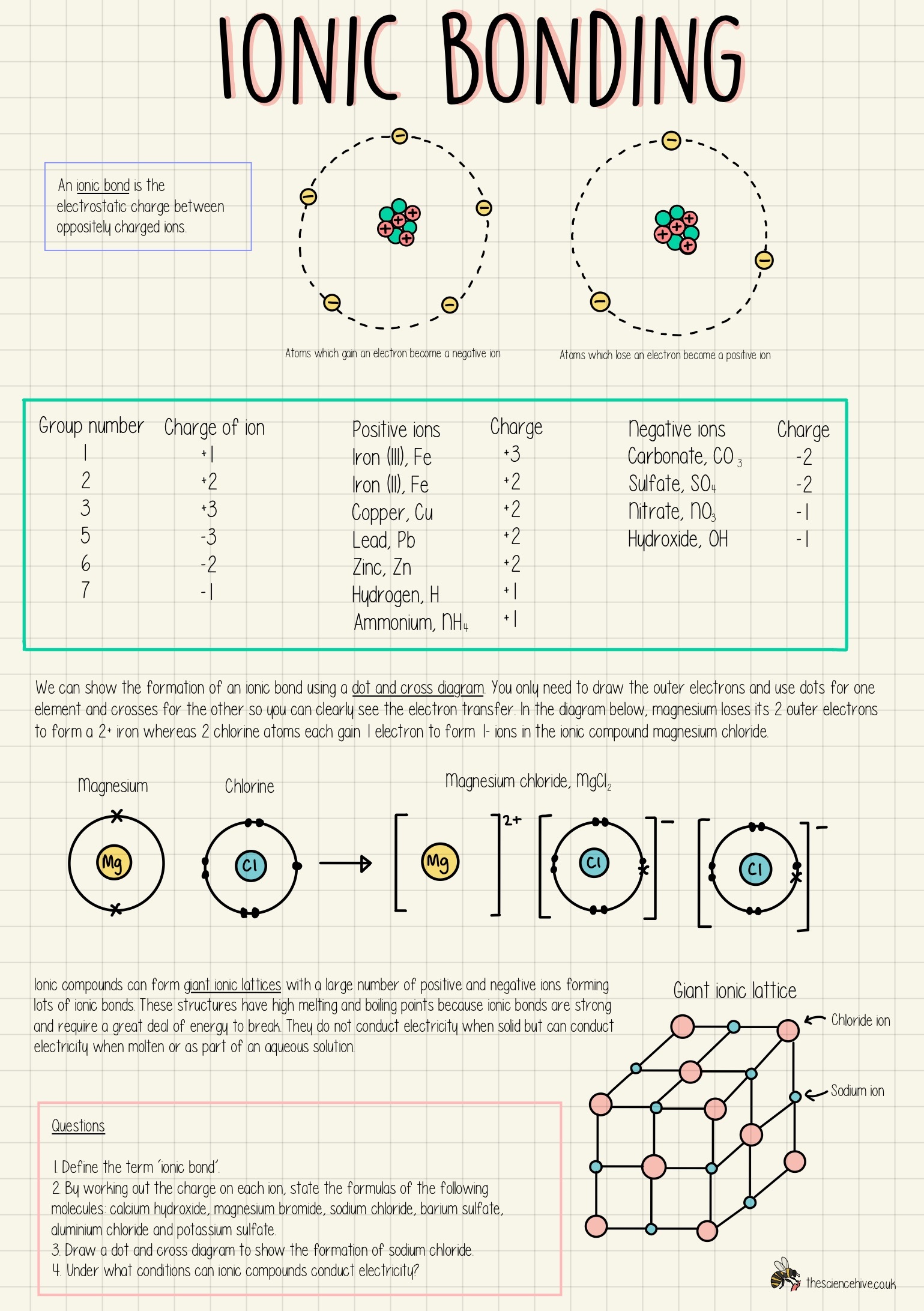Ionic Bonding Worksheet Answers - Ionic bonds occur when metal atoms transfer electrons to nonmetallic atoms. Model 1 substances are called ionic compounds and model 2 substances are called covalent molecules. Write a simple rule that will allow you. • in naming simple ionic compounds, the _____ is always first, the _____ second (e.g., sodium. Ionic bonds • ionic bonds form between _____ and _____. The resulting cations and anions form very strong bonds.
• in naming simple ionic compounds, the _____ is always first, the _____ second (e.g., sodium. Write a simple rule that will allow you. Ionic bonds • ionic bonds form between _____ and _____. Ionic bonds occur when metal atoms transfer electrons to nonmetallic atoms. The resulting cations and anions form very strong bonds. Model 1 substances are called ionic compounds and model 2 substances are called covalent molecules.
• in naming simple ionic compounds, the _____ is always first, the _____ second (e.g., sodium. Model 1 substances are called ionic compounds and model 2 substances are called covalent molecules. The resulting cations and anions form very strong bonds. Write a simple rule that will allow you. Ionic bonds occur when metal atoms transfer electrons to nonmetallic atoms. Ionic bonds • ionic bonds form between _____ and _____.
SOLUTION Ionic bonding gizmo answers Studypool
Model 1 substances are called ionic compounds and model 2 substances are called covalent molecules. Ionic bonds • ionic bonds form between _____ and _____. The resulting cations and anions form very strong bonds. Ionic bonds occur when metal atoms transfer electrons to nonmetallic atoms. Write a simple rule that will allow you.
Ionic Bonding Worksheet And Answers
The resulting cations and anions form very strong bonds. Ionic bonds • ionic bonds form between _____ and _____. • in naming simple ionic compounds, the _____ is always first, the _____ second (e.g., sodium. Write a simple rule that will allow you. Model 1 substances are called ionic compounds and model 2 substances are called covalent molecules.
Free Printable Ionic Bonding Worksheets
• in naming simple ionic compounds, the _____ is always first, the _____ second (e.g., sodium. The resulting cations and anions form very strong bonds. Model 1 substances are called ionic compounds and model 2 substances are called covalent molecules. Ionic bonds occur when metal atoms transfer electrons to nonmetallic atoms. Ionic bonds • ionic bonds form between _____ and.
Ionic Bonding Worksheets
The resulting cations and anions form very strong bonds. Ionic bonds occur when metal atoms transfer electrons to nonmetallic atoms. Ionic bonds • ionic bonds form between _____ and _____. • in naming simple ionic compounds, the _____ is always first, the _____ second (e.g., sodium. Write a simple rule that will allow you.
Gcse Chemistry Ionic Bonding Worksheet
Write a simple rule that will allow you. The resulting cations and anions form very strong bonds. Ionic bonds occur when metal atoms transfer electrons to nonmetallic atoms. • in naming simple ionic compounds, the _____ is always first, the _____ second (e.g., sodium. Model 1 substances are called ionic compounds and model 2 substances are called covalent molecules.
Ionic Bonding Worksheet Type 1 Practice Ionic Bonding Chemical
• in naming simple ionic compounds, the _____ is always first, the _____ second (e.g., sodium. Write a simple rule that will allow you. The resulting cations and anions form very strong bonds. Ionic bonds • ionic bonds form between _____ and _____. Model 1 substances are called ionic compounds and model 2 substances are called covalent molecules.
Ionic bonding worksheet with answers Studocu
Ionic bonds • ionic bonds form between _____ and _____. • in naming simple ionic compounds, the _____ is always first, the _____ second (e.g., sodium. Model 1 substances are called ionic compounds and model 2 substances are called covalent molecules. Write a simple rule that will allow you. Ionic bonds occur when metal atoms transfer electrons to nonmetallic atoms.
Bonding Basics Ionic Bonds Worksheet
Model 1 substances are called ionic compounds and model 2 substances are called covalent molecules. Write a simple rule that will allow you. Ionic bonds • ionic bonds form between _____ and _____. Ionic bonds occur when metal atoms transfer electrons to nonmetallic atoms. • in naming simple ionic compounds, the _____ is always first, the _____ second (e.g., sodium.
Ionic Bonding Worksheet Answers Back Printable Kids Entertainment
Model 1 substances are called ionic compounds and model 2 substances are called covalent molecules. • in naming simple ionic compounds, the _____ is always first, the _____ second (e.g., sodium. Ionic bonds • ionic bonds form between _____ and _____. Ionic bonds occur when metal atoms transfer electrons to nonmetallic atoms. Write a simple rule that will allow you.
Ionic Bonding Worksheets Answer
Ionic bonds occur when metal atoms transfer electrons to nonmetallic atoms. Ionic bonds • ionic bonds form between _____ and _____. Write a simple rule that will allow you. The resulting cations and anions form very strong bonds. Model 1 substances are called ionic compounds and model 2 substances are called covalent molecules.
Model 1 Substances Are Called Ionic Compounds And Model 2 Substances Are Called Covalent Molecules.
The resulting cations and anions form very strong bonds. • in naming simple ionic compounds, the _____ is always first, the _____ second (e.g., sodium. Ionic bonds occur when metal atoms transfer electrons to nonmetallic atoms. Write a simple rule that will allow you.









